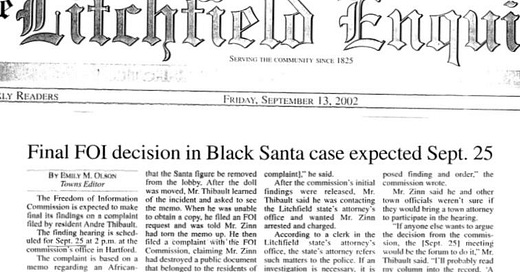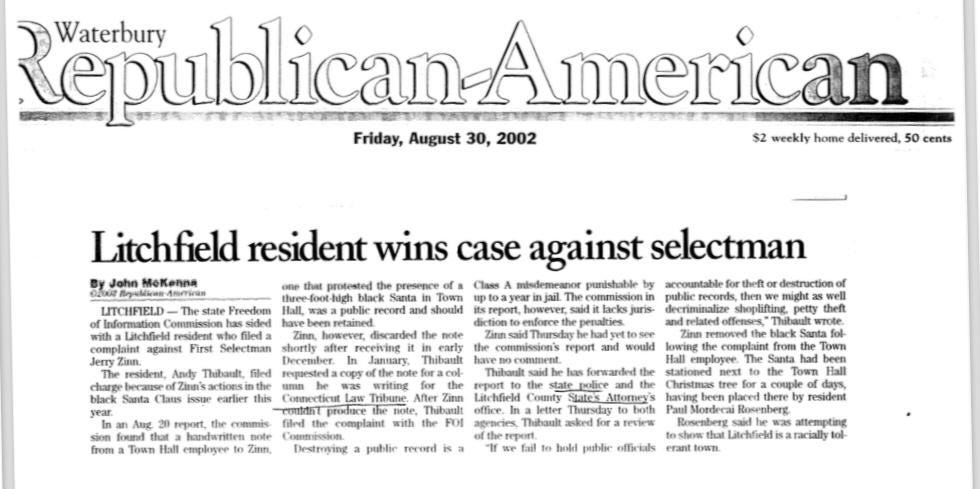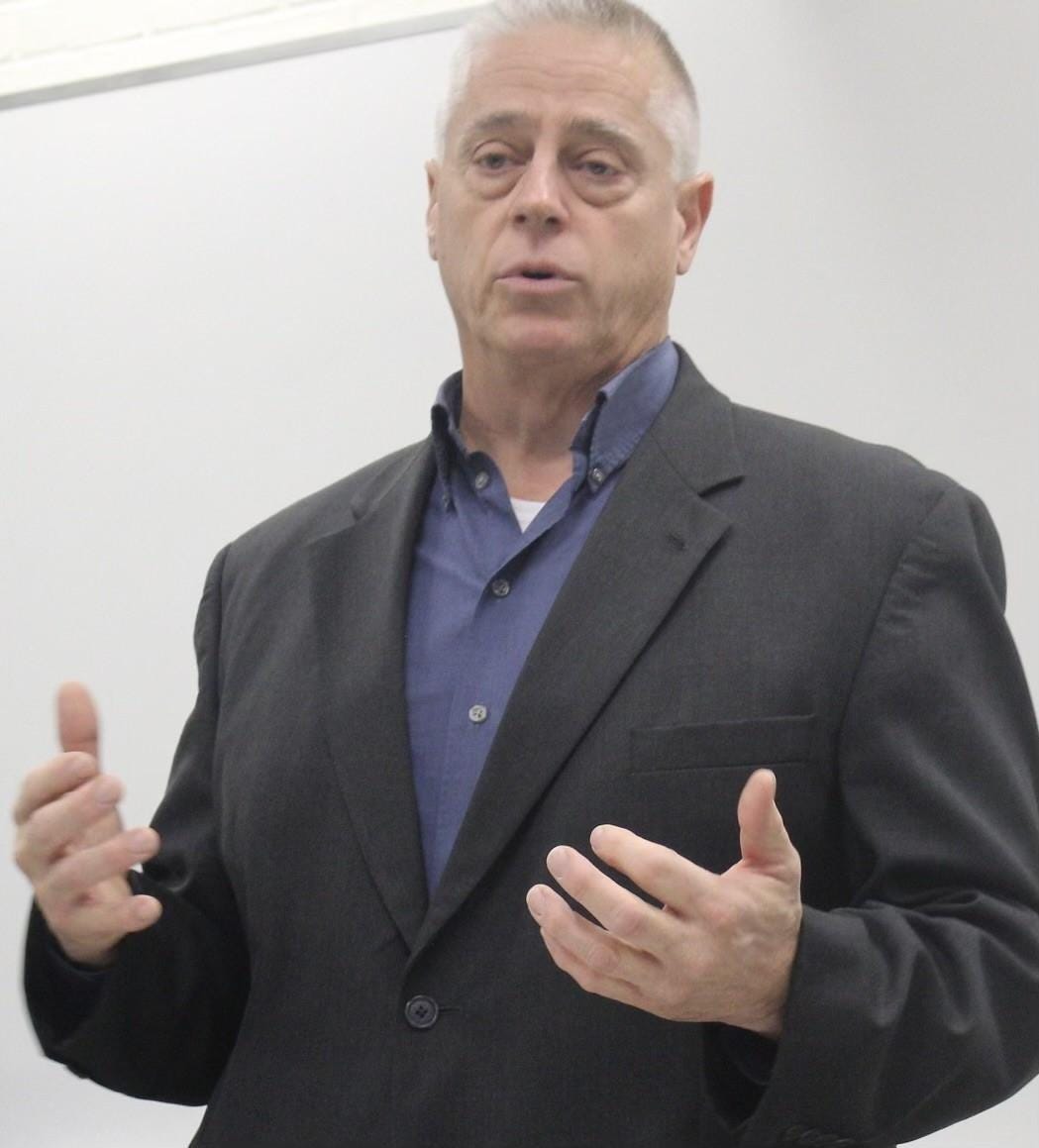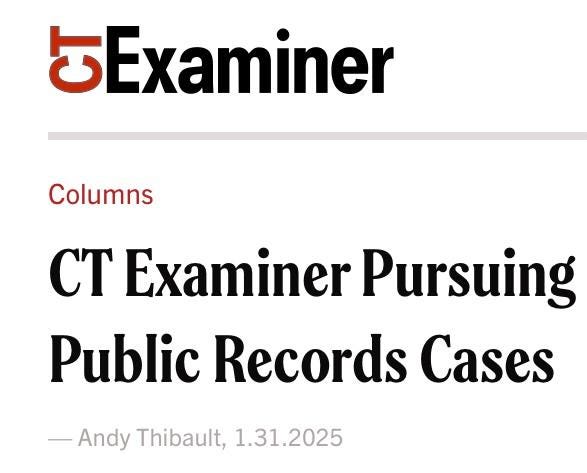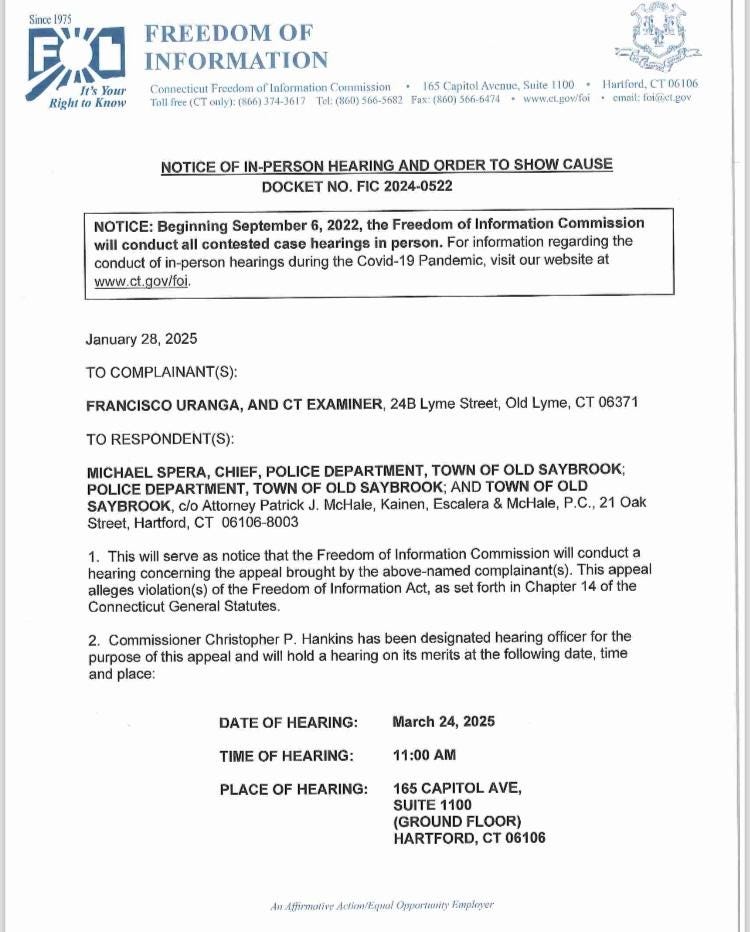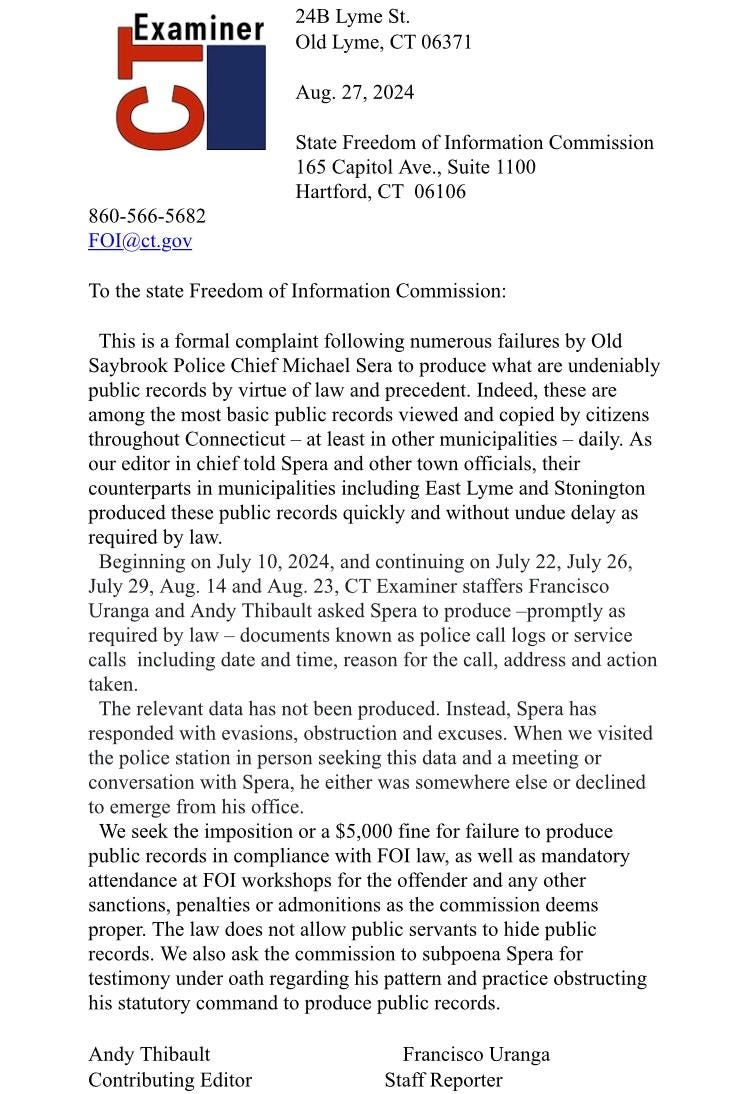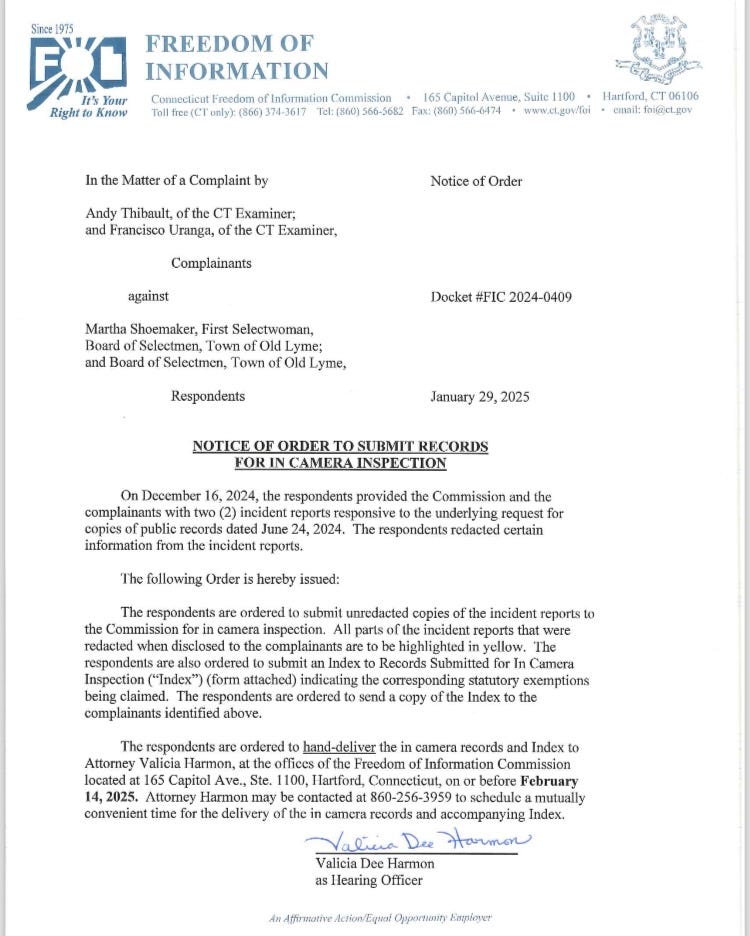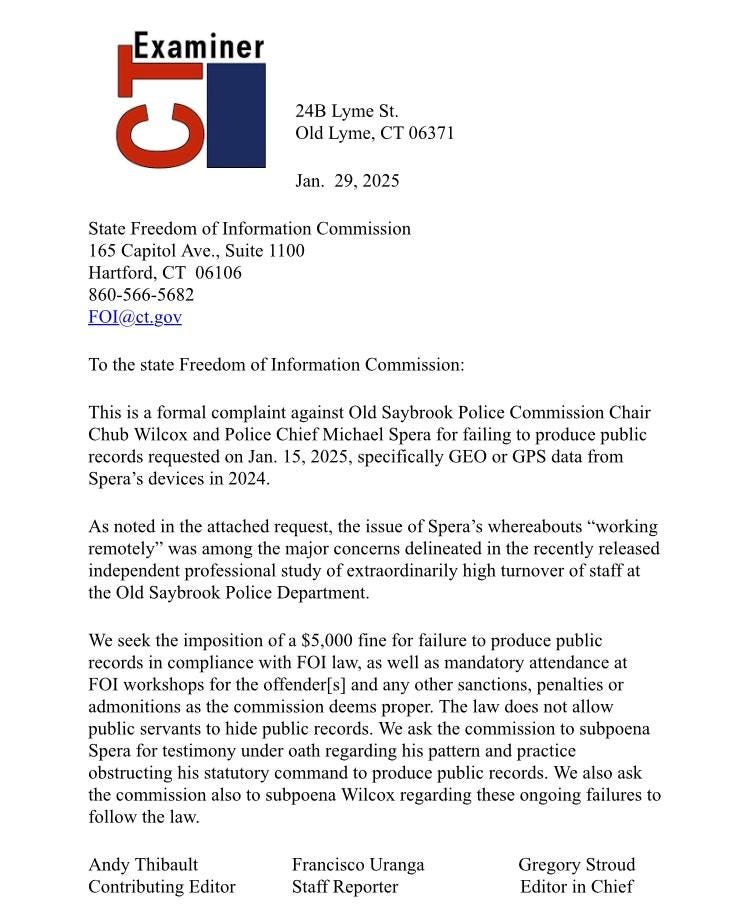That Time The CT State Police Major Crime Squad Investigated Destruction of a Public Record
First Selectman Destroyed Note About Black Santa Claus: Escaped Arrest After Prosecutor's Call
Black Santa FOI Hearing
FOI Commission Finding
2002 Cool Justice Column About The Case
Black Santa: Back Of The Bus
Symbols are important. Santa Claus, statues of military heroes, Columbus -- they all say something about the values of our society.
The day Black Santa came to virtually all-white Litchfield, values and fears were played out in a most curious way. It all started when Paul Mordecai Rosenberg, a self-described Jewish atheist, brought a plastic, three-foot-high, black Santa Claus to town hall. Rosenberg said he was giving the town a chance to show it was not bigoted.
Top officials had been under fire because they refused to allow a town meeting on a proposal that would honor the great abolitionist and best-selling author of the 19th century, Litchfield's own Harriet Beecher Stowe. There seemed to be a methodical attempt in town to downplay Stowe. Stowe was rarely, if ever, honored by the local historical society or town officials. Some owners of the big mansions talked openly about the prospect of declining property values should the Stowe house be restored in a prime downtown location. Others whispered and trembled at the possibility that busloads of black kids would be coming to town to see the childhood home of the woman who wrote “Uncle Tom’s Cabin.”
For two days, Black Santa sat happily under a Christmas tree. Then he disappeared.
It seems a few people were quite upset. “Everyone knows Jesus was white,” one town official was reported to have said.
Someone handed First Selectman Jerry Zinn a memo complaining that this Santa was, well, “inappropriate.” No one ever explained how or why.
And so Black Santa stayed tucked away in the back of Jerry Zinn’s office for Christmas. Connecticut's TV stations came to see. Even CNN ran a story. Zinn said he liked being on TV.
I asked Zinn for a copy of the memo. He told others he tore it up.
Because this memo -- from one town employee to another -- was a public record, I asked Zinn to produce it or reconstruct it in accordance with Connecticut's Freedom of Information law. The FOI Commission advised me that destruction of public records is a serious criminal offense, a Class A misdemeanor, Sec. 1-240, and that the State's Attorney should be informed. Penalties include fines of up to $1,000 and up to a year in jail. The State's Attorney’s office advised me to report such an incident to the state police, and I did.
I also asked Town Assessor Harold Doucey if he had written the memo or if it came from his computer. Doucey responded, “I don't know the source of it. It could have been computer-generated. It didn’t come from my computer.” When Doucey was told by a citizen that Zinn had given him up to others as the author of the memo, Doucey stated, “I believe in putting everything in writing.”
Tourism is the top priority in Litchfield’s plan of development. Some communities would be proud to have the Stowe House. How can this Board of Selectmen turn their backs on a no-brainer?
“It would be nice,” said Dorothea DiCecco, a University of Connecticut biology professor and a local proponent of the Beecher House, “to show the world that Litchfield is not racist, that Litchfield welcomes everyone.”
DiCecco is right. It would be a shame to let Litchfield get away with this.
-
Register Citizen Headline
Police investigating Litchfield selectman
LITCHFIELD - Officials from State Police Troop A in Southbury have confirmed The State Police Western District Major Crime division is conducting a criminal investigation into the actions of Litchfield First Selectman Jerry Zinn regarding the destruction of a public record.
By JASON TOMASZEWSKIFeb 14, 2002
"There is an ongoing investigation being conducted," Sergeant Warren Hyatt of Troop A said. "After that there is not much more I can say until the investigation has been completed."
-
ERICK CUATZO photo
Warren “Butch” Hyatt, spoke to University of New Haven students about the case in 2022. Hyatt told students his learning experiences with Connecticut's Freedom of Information law enhanced his career in management, which included included rising from trooper to lieutenant colonel operations during 28 years with the state police prior to serving as chief in Guilford. Hyatt discussed in detail the criminal investigation resulting from destruction of a public record which was a memo written on a sticky note. Prosecutors ultimately declined to prosecute the first selectman who destroyed the public record, claiming there was no criminal intent.
-
MEANWHILE …
Current Old Saybrook and Old Lyme Public Records Cases
RELATED PUBLIC RECORDS
-
-
STAY TUNED FOR THE LATEST NEWS:

